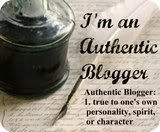I love short stories. I know some people
don't like them because there isn't enough character development, or subplots, or there's not enough time to get involved in the story, or whatever. I think a well-written short story can be brilliant and very entertaining. I also like to occasionally be able to consume a story in a short chunk of time rather than starting three different novels or something like that.
I've never really understood the inherent hostility toward the short form writing. Sure, they're not to everybody's taste, but the amount of venom in
this Wet Asphalt post just boggles my mind. Some of my favourite authors have both novels and short stories to their credit, and some of them (Robert Reed, for example) clearly love the craft of writing a good, focused short story. I don't buy the attitude that those who write short stories are slumming or marketing whores keeping their names out in the public, or anything like that.
Those are extreme examples of criticism, though. What about those who just don't like reading them?
Short stories can make you think as a reader. Some people don't like that, of course. They want everything handed to them on a platter with no real nuance. This attempt to engage readers' minds can result in some great stories that end rather ambiguously, forcing the reader to make up his/her own mind about what the story might have meant.
You can't do that in a novel. If a 550-page novel ends on an ambiguous note, I would probably feel cheated unless it was extraordinarily well-done. A short story, though? One that may take 20-30 minutes to read? I'm a bit more forgiving. I may not like how the story ended, but I don't feel robbed of my time once I have finished.
The short story allows for far more experimentation in tone and style as well. Sure, there are varying degrees of success or failure in these experiments. Again, if it fails, you haven't invested huge amounts of time and energy in the story. This can allow writers to do all sorts of things with (and to) their characters, knowing that the character may never come back.
One of my favourite short stories is "Story Kit" by Kij Johnson (published in
Eclipse Four, edited by Jonathan Strahan), and I really didn't like it when I started reading it. It starts talking about six different story types (as stated by author Damon Knight) and explores a female writer trying to craft a story about Dido (from the
Aeneid). Interspersed with this is the writer's attempts to deal with the failure of her marriage. One becomes a metaphor for the other, and by the end of the story you're really engaged with the writer's dilemma and heartache. It's a fascinating story, and I don't think the style would fit anything other than a short story.
What about the often-given reason for not liking short stories? The "just when I'm getting involved in the story, it ends" reasoning? I think that's looking at things the wrong way. No short story should leave the reader hanging so that they're "just getting involved" in it as the story draws to a conclusion. The narrative arc of the story should take the reader on the journey so that he/she doesn't even notice the length until it comes to its natural endpoint. If you're left "wanting more" because you feel the story is incomplete, then that's a failure on the writer's part. (As opposed to the reader wanting more of that author's work, which is actually a good thing)
How about the "I like to get involved in a story and the characters and a short story doesn't allow me to do that"? The craft of a short story is much different than a novel, and a good writer will pack enough characterization (even if it is done in shorthand) that you feel that you know the characters well enough for this not to be an issue. Yes, you won't get as much detail of the character's background if it's not important to the story, but I would argue that it's the same thing in a novel. Even with greater length, if it's not necessary for me to know that the main character likes tuna fish sandwiches, then I would hope the author wouldn't feel the need to tell me this.
Short stories don't allow quite the number of twists and turns that a novel can give, but they can still turn on a dime and surprise the reader. Many short stories do have a twist at the end, or at least a change in direction that comes at a shock to the reader. There are no subplots in a short story either, but that's beside the point of what a short story is.
One of the principle reasons I've always loved short stories, though, is the time element. I can read a story and then set the book down again if I want. I won't be stuck in the middle of a narrative. They make great reading for bus trips or something like that where your time is limited. I love novels too, but short stories make a perfect snack in between lengthy tomes, something satisfying to cleanse the pallet.
And you just might find yourself thinking more than you had anticipated as well.
There are some great short stories available online if you want to sample.
Lightspeed Magazine hosts many of their stories free for reading without a subscription if you want to dip your toe in. If you're not into SF, then maybe some of the more "literary" stories found at
Fish Publishing might be more to your liking?
Whatever the case, give a few a try. Keep in mind that not every short story is good, so try not to read one and say "nope, not for me." Try a few before giving up on them.
You might find yourself with even more great stuff to read.
So what about you? Are you a short story fan or hater? Let me know in the comments.




































